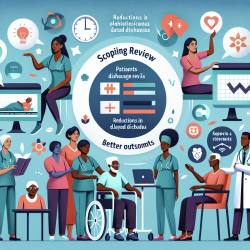Understanding the Legacy of Hope Summit
The Legacy of Hope Summit brought together 25 distinguished professionals from the U.S. eating disorders community, including clinicians, researchers, and individuals with lived experience. This summit aimed to reach a consensus on critical issues in the field of eating disorders and provide recommendations for future action. The outcomes of this summit offer valuable insights for practitioners seeking to improve their skills and understanding of eating disorders.
Key Recommendations for Practitioners
The summit's consensus points highlight several areas where practitioners can focus their efforts to improve outcomes for individuals with eating disorders:
- Early Detection and Intervention: Implement creative health education initiatives that focus on societal perceptions and timely intervention. These initiatives should target parents, families, and frontline healthcare providers to maximize impact.
- Accessibility and Affordability: Improve access to affordable, quality care for those with eating disorders. Practitioners should advocate for greater transparency and accountability from healthcare providers regarding their qualifications and treatment outcomes.
- Standardized Care: Establish and maintain treatment program accreditation and professional credentialing. Practitioners should support the development of treatment guidelines that consider diverse populations and evidence-based standards of care.
- Research and Funding: Encourage research across diverse populations and domains to establish effective, evidence-based standards of care. Practitioners can contribute by participating in research and advocating for increased funding.
- Unified Advocacy: Speak with a unified voice on core issues affecting individuals with eating disorders. Practitioners can play a crucial role in advocating for early intervention, accessible care, and increased public awareness.
Implementing the Recommendations
Practitioners can implement these recommendations by integrating them into their daily practice and advocating for systemic changes within their organizations and communities. Here are some practical steps:
- Participate in ongoing professional development to stay informed about the latest research and treatment approaches.
- Collaborate with other professionals to develop and implement standardized treatment protocols.
- Engage with advocacy groups to promote policy changes that support individuals with eating disorders.
- Utilize technology and social media to raise awareness and disseminate information about eating disorders.
- Encourage open dialogue and collaboration among diverse stakeholders in the eating disorders community.
Conclusion
The Legacy of Hope Summit has provided a roadmap for advancing the field of eating disorders and improving the lives of those affected. By implementing the recommendations and continuing to advocate for change, practitioners can play a vital role in lighting the path forward with hope and healing.
To read the original research paper, please follow this link: The legacy of hope summit: a consensus-based initiative and report on eating disorders in the U.S. and recommendations for the path forward.










